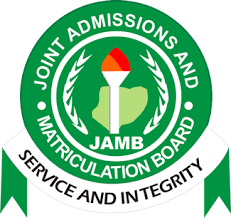TIPS ON HOW TO DEVELOP LEADERSHIP SKILLS
Any one who wishes to succeed in school or in thier career must possess strong leadership qualities. The good news is that you can learn to lead effectively. In this article we will talk about how to develop your leadership abilities/ skills as a an individual.
WHAT ARE THE QUALITIES A LEADER MUST POSESS
Inspiring, motivating, and guiding people are all characteristics and attributes of a leader. Whether in the office, the classroom, or your society, these abilities are beneficial for everyone in a leadership position.
The ability to delegate work and projects and be a strong communicator are just a few of the many qualities that can make someone a good leader. Here, we go through some essential leadership abilities you should be aware of.
HERE ARE SIX MAJOR ROLES OF STRONG A LEADER.
Depending on who you ask, the definition of leadership will vary. There is much more to being a leader than merely having characteristics like charisma, confidence, and decisiveness. Typical traits of a leader include the following:
STRATEGIC THINKING
To improve your ability to set priorities, make decisions, and allocate resources, you can hone your strategic thinking abilities. In order to make judgments that will contribute to a company’s long-term success, a leader must consider the larger picture.Creative problem-solving, an understanding of how problems develop, and a consideration of all potential outcomes are essential for leaders. They must be able to recognize opportunities and dangers quickly and have a thorough awareness of the strengths and weaknesses of their organization.
ASSIGNING DUTIES
Effective task delegation is crucial in any leadership position. Time and resources are used most effectively in this way.This can free up a leader’s time so they can concentrate on other tasks. In addition, it can help others learn new abilities and distribute the task. Being explicit about expectations is crucial when assigning jobs. Set a fair schedule and be sure you supply enough resources.
Making sure the team is on track and receiving the assistance they require, it’s also crucial to check in with them. This necessitates both individual and group check-ins with individuals. You can then determine whether the task is too challenging using this method. It is simple and of advantage to change course as needed if they require extra time or money. Workplace stress can be exacerbated if a team or individual is having difficulty completing a task. The task might not be completed or done well as a result, and your team’s morale may suffer. Task delegation may be a potent leadership tool when done correctly.
MANAGEMENT PLANNING
Managing change in an organization is the responsibility of a leader. Planning, executing, and monitoring changes are all parts of change management, which is done to achieve organizational objectives.
It entails a number of phases, including determining timetables, assigning responsibilities, and evaluating the necessity for change.
Leadership that is nimble is crucial in this situation. Agile leadership is a type of leadership that emphasizes flexibility, adaptation, and quickness. It is built on the agile software development tenets, which emphasize teamwork, ongoing learning, and client feedback.
Those in positions of leadership must act quickly in an agile organization to adapt to market changes. .
BETER COMMUNICATION SKILLS
To be a good leader, you must have interpersonal communication skills.Effective leaders are able to influence, inspire, and encourage people by using these abilities. Understanding organizational behavior, which is the study of how people act in organizations, might help with this. These abilities are crucial for any leader who wishes to foster a supportive work atmosphere and motivate team members to work together toward a common objective.
MANAGEMENT SKILLS
This is the capacity to organize, lead, manage, and guide people and resources toward predetermined objectives. A successful manager is one who adopt each of these abilities to produce the desired outcomes.
The capacity to plan is among the most crucial managerial abilities. Setting objectives and goals, followed by creating a plan to achieve them, is required. It necessitates knowledge of the project’s team’s skills and the resources at their disposal. Following the creation of the plan, it is crucial to track development and make any necessary modifications as needed.
Another important component of effective management is organizational skills. This involves having the capacity to create systems and practices that keep things organized. Additionally, you must be skilled in assigning duties and obligations to others. Keeping track of all the moving elements and making sure that everyone is on schedule requires strong organizational abilities.
EFFECTIVE COMMUNICATION
Effective communicators who can make their points quickly and clearly are good leaders. They are aware of how crucial voice and body tone are. They are also capable of listening. Every facet of leadership requires excellent communication abilities. A leader who can master the art of communication has a greater chance of succeeding in motivating their team and cultivating relationships with stakeholders.
You can communicate more effectively in a variety of ways. Active listening involves listening intently to what others are saying and attempting to comprehend their viewpoints. Spend some time getting ready in advance for what you want to say. You’ll talk more clearly and succinctly as a result of this. You may become a more effective leader by developing your communication abilities.
management skills and leadership are frequently used synonymously. But there are significant disparities between the two. A common objective can be achieved through inspiring and motivating people to work toward it. Setting a clear vision, conveying it, and motivating people to work toward it are all part of this process.
Resource planning, organization, and coordination are the main focuses of management abilities. To achieve goals successfully and efficiently, good management is required.
Any organization needs both leadership and management abilities to operate effectively. To be a leader with the greatest impact, you must comprehend the distinctions between the two.
Benefit Of Having Strong LEADERSHIP ABILITIES
There are several factors that make strong leadership abilities necessary. They ensure that an organization can accomplish its objectives and assist people in achieving excellence in both their work and personal development.
It might be challenging to get everyone to strive toward the same goals in the absence of strong leadership. Great leaders motivate their colleagues and aid them in overcoming obstacles. Higher levels of productivity and morale may result from this. Effective leaders are adept at making decisions and addressing problems, which helps them avoid catastrophes.
It’s crucial to remember that having strong leadership qualities also qualifies you for many scenarios in your personal life. This involves the capacity to settle disputes, control workload and stress, make decisions, express oneself clearly, and create objectives.
This means that enhancing your leadership abilities can enhance your quality of life in a variety of ways, from strengthening your interpersonal relationships to living a more rewarding existence.
It’s crucial to have a leader who assumes responsibility and offers guidance when necessary in every workplace. A good leader has the ability to motivate others, offer assistance and direction, and make judgments.
modern issues that affect leaders
Managing one’s own time and resources while overseeing others is a difficult challenges faced by some leaders. This can be more difficult than ever in the fast-paced, dynamic corporate environment of today.
Modern issues that affect leaders include the globalization of the economy and the rising use of technology.
Contemporary issues that affect leaders include the globalization of the economy and the rising use of technology.
Businesses now compete in a wider market as a result of economic globalization. As a result, businesses will face tougher competition and will need to adapt to shifting domestic and global markets. Therefore, having leadership qualities on a global scale is crucial.
Businesses may potentially face difficulties due to political unrest/ instability. Trade deal uncertainty may result from instability. This presents problems with finance and investment and makes it challenging for organizations to plan for the future. Leaders can set up their organizations for success by comprehending these difficulties.
Finally! leaders today face a variety of difficulties in trying to fulfill the needs of a company environment that is constantly evolving while also keeping up with the development of management practices. You can overcome any obstacles that come your way by consistently improving your leadership abilities.
ADVANTAGES OF HAVING A LEADERSHIP SKILLS
Building solid relationships is a hallmark of a good leader. People are more inclined to appreciate and respect you if you have the power to inspire and motivate them. More efficient and effective teamwork may result from this.
The ability to think critically, solve problems, and make decisions will all improve as a leader. You need these for both your personal and business lives.
BELOW ARE SIX TIPS THAT CAN HELP YOU BECOME A BETTER LEADER.
Here are a few tips to get you started on the road to becoming a better leader. There are many ways to develop your leadership abilities.
DISCOVER YOUR STRENGTH
It’s not always simple to do this. We frequently lack awareness of our own assets and liabilities. In order to maximize your potential, it is important to comprehend them.
Take a seat with a pen and paper to get started. List your advantages and disadvantages. Don’t worry if your list is long or small; just try to be as descriptive as you can.
It may be a good idea to solicit feedback from others to build a more accurate image because it can be difficult to be objective when assessing your strengths and faults.
To record your accomplishments and setbacks throughout time, think about maintaining a notebook. Regular self-evaluation can help you gain a better sense of who you are and how to utilize your strengths to their fullest.
TAKE ONLINE COURSES
Taking online courses that can give you the knowledge and abilities required to be a good leader is one of the finest methods to improve your leadership abilities. Networking with other professionals is another benefit of taking classes.
Choose a recognized and accredited program whether you like to take courses in person or online. There are a variety of management and leadership courses available, and with Futurelearn, you can be sure you’re receiving a quality education from knowledgeable instructors.
UPDATE YOUR TECHNICAL KNOWLEDGE.
Technical expertise is becoming more and more vital. Therefore, it is crucial for leaders to have a firm knowledge of the competencies pertinent to their industry.
Important hard skills include managing contracts, projects, and finances, though these can vary greatly depending on the industry you work in. If you’re unsure of which hard skills are important for your industry, seek advice from your manager or a mentor.
CHOOSE YOUR OBJECTIVES.
It’s critical for leaders to establish a distinct vision for their teams. Making decisions and giving guidance may be challenging without this. Start by considering your short- and long-term objectives to help you decide on your goals. Setting goals that are concrete, quantifiable, achievable, relevant, and time-bound can allow you to start creating a more detailed plan.
When establishing goals, it’s equally critical to consider your team. Make sure your objectives are doable and attainable. Additionally, they have to be in line with your team’s competencies and the overall organizational strategy.
ACCEPT FAILURE AND MOVE FORWARD.
Everybody makes errors. When you fail as a leader, it’s critical to acknowledge it and move on. Your team will see that you are a real person who is eager to grow from your mistakes if you do this. Your employees will respect and believe you more if you are willing to take ownership.
Utilize setbacks as learning opportunities. You’ll be able to pinpoint areas for development and modify your approach by thinking back on your errors. A culture of learning and growth is developed when team members share their learnings.
LASTLY!
The subject of leadership is intricate. You can develop your leadership abilities in a variety of ways, from setting goals to accepting failure. It’s crucial to keep in mind that there isn’t a leadership style that works for everyone. It’s a process of self-development that needs reflection, patience, and dedication.
If you find this Article helpful kindly share using the share button below ?









